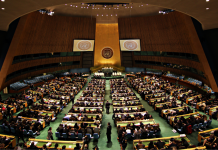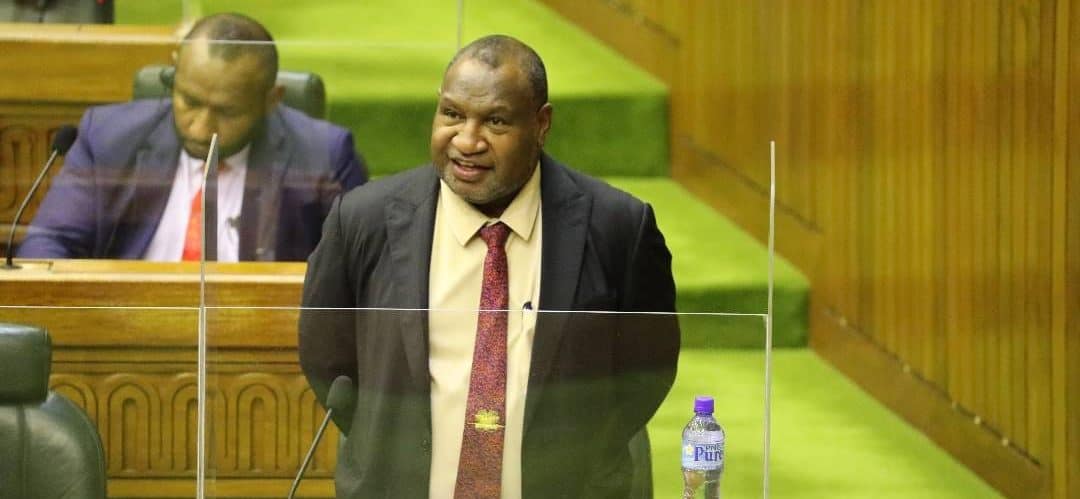The Papua New Guinea Government has given notice to amend Section 145 of the Constitution on motions of no confidence.
Prime Minister James Marape told The National that the proposed amendment would insert a subsection allowing for a restart to the 18-month grace period, should a motion of no confidence failed.
He said the amendment would not stop a motion of no confidence from going ahead, such as the current proposed one. But if it fails, a new 18-month grace period will begin.
A notice for gazettal of the alteration, dated 20 February, has been published in the National Gazette.
Clerk of Parliament Kala Aufa confirmed receiving notice from the Government to bring to Parliament the constitutional amendment.
He said it would be a month before it could be tabled.
Marape also explained that the amendment would not affect the normal 18-month vote of no confidence from when a political party is invited to form government after a general election.
“If a vote of no confidence is successful after the first 18 months, then the changes happen.
“But, if it fails, then another attempt for a vote of no-confidence will not take place until after 18 months from when the attempt was first made.”
Meanwhile, PNG Trade Union Congress assistant general secretary Anton Sekum described the proposed amendment as undemocratic.
Sekum said it was a dangerous proposition to restrict the vote of no-confidence to one attempt only during a term of Parliament.
“The vote of no confidence is a part of a critical system of checks and balances in a democracy,” he said.
Referring to a 2015 Supreme Court ruling against former prime minister Peter O’Neill’s attempt to extend the 18 months to 30 months, Sekum said the court “stated very clearly that votes of no confidence are intended to maintain accountability rather than political stability”.
“Political instability is not caused by a vote of no-confidence.
“It is caused by unprincipled and corrupt MPs swinging like monkeys from tree to tree for want of more bananas.”
In that ruling (SCA No.165 and 177 of 2013), the Supreme Court had maintained “that a vote of no-confidence is an integral part and a legitimate process and procedure of a democratic Parliament”, noting at the time that PNG has had only three votes of no confidence (with the upcoming to be the fourth) so the need for stability was somewhat exaggerated.
Section 145, as per the 20 February notice for gazettal, will be amended “by adding immediately after sub-section (4), the following new sub-section: (5) Where a motion of no confidence in the prime Minister is unsuccessful, a subsequent motion of no confidence in the Prime Minister, after the unsuccessful motion of no confidence shall not be moved for another period of 18 months commencing on the date that the motion of no-confidence is unsuccessful”.
Marape told The National that changing section 145 of the Constitution with the insertion of sub-section 5 would not affect the proposed vote of no confidence, likely for staging next Thursday.














